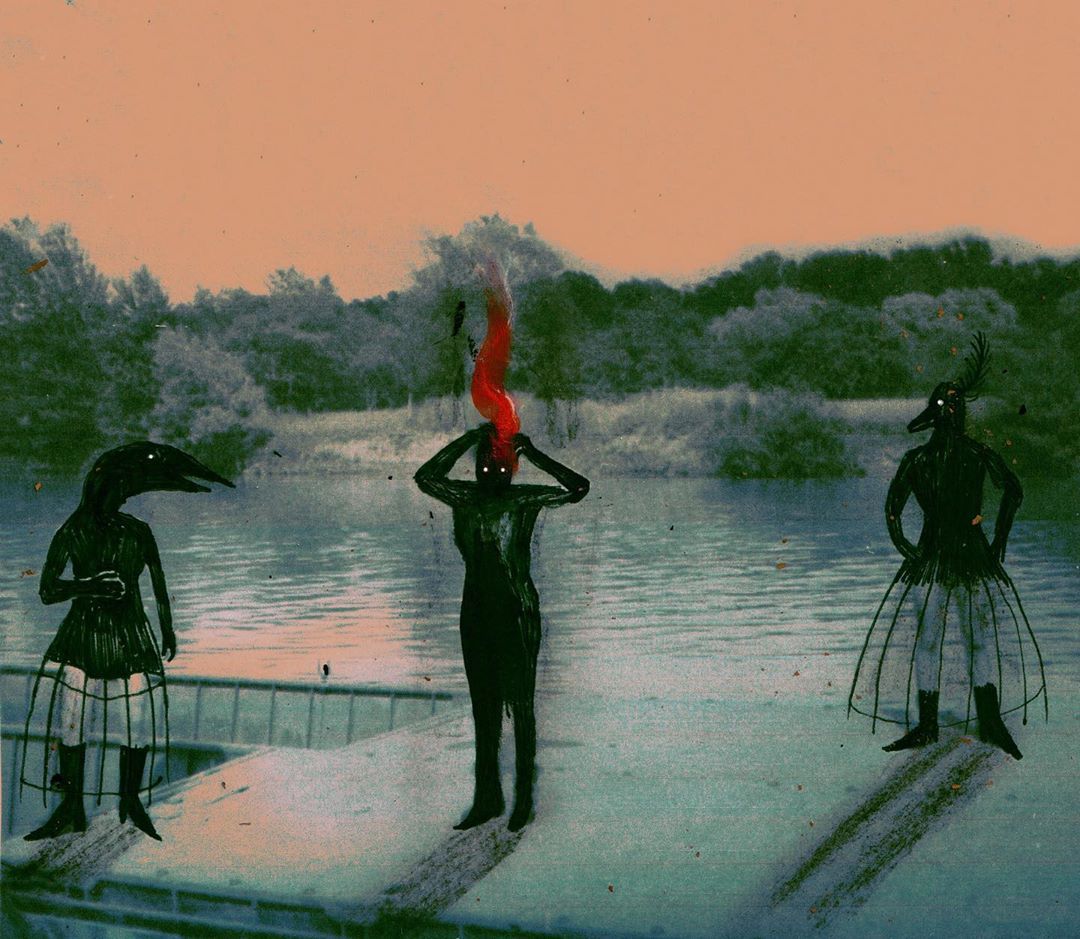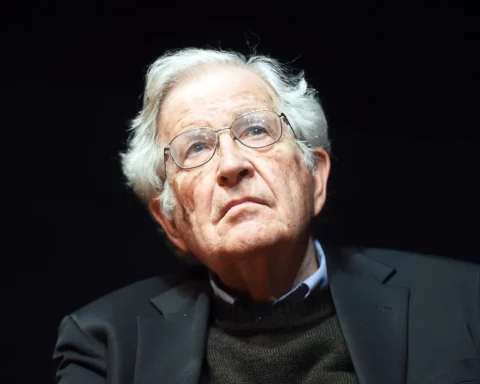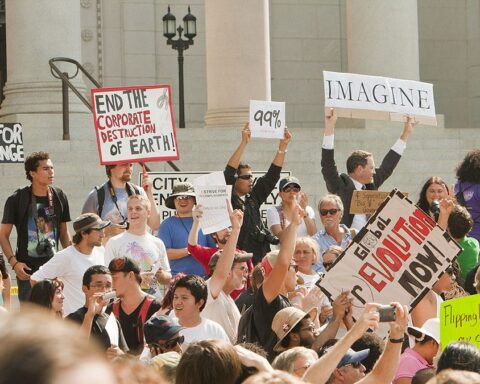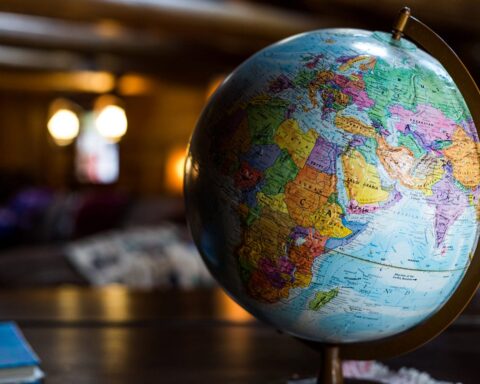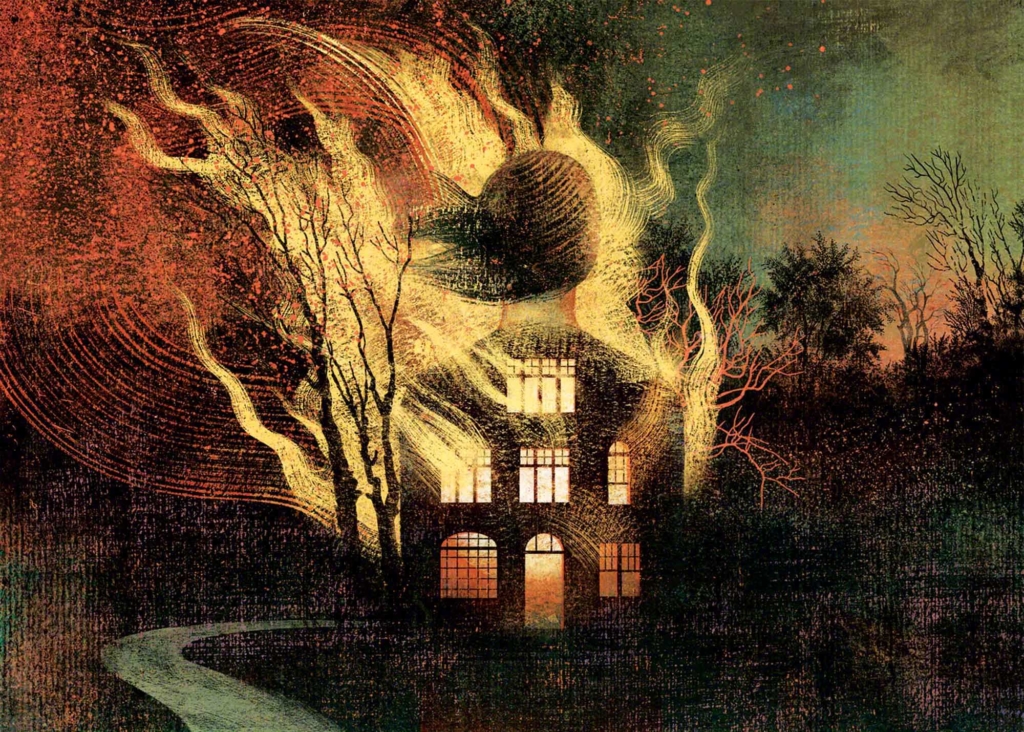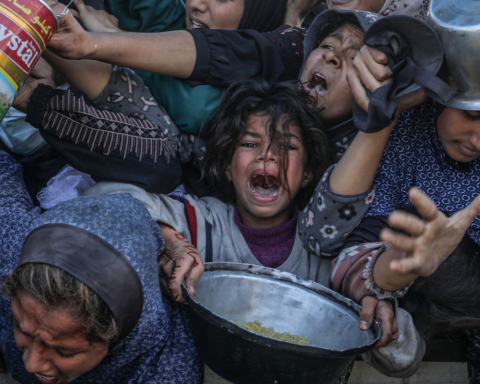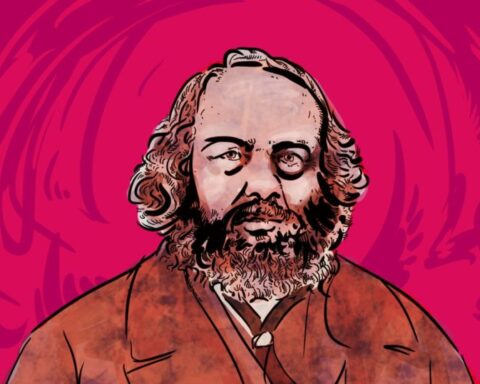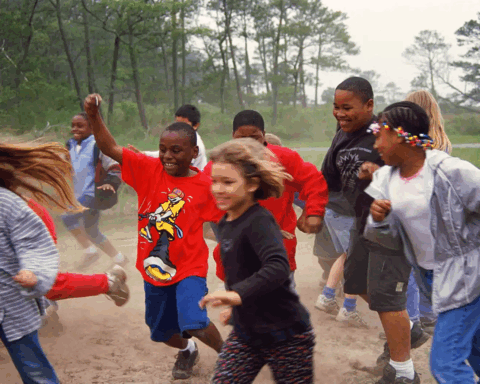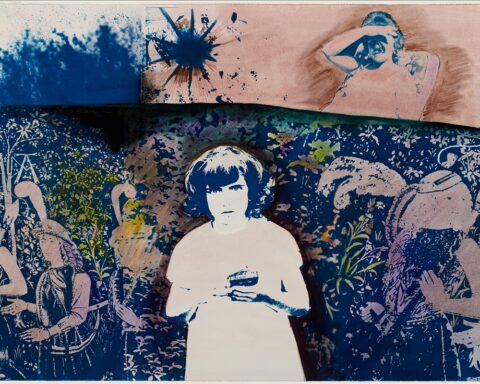“Nothing I’m doing makes any sense if the house is on fire.” Yet even when the house is on fire it is necessary to continue as before, to do everything with care and precision, perhaps even more so than before—even if no one notices. Perhaps life itself will disappear from the face of the earth, perhaps no memory whatsoever will remain of what has been done, for better or for worse. But you continue as before, it is too late to change, there is no time anymore.
“What’s happening around you / is no longer your business”. Like the geography of a country that you must leave behind forever. Yet how does it still affect you? Precisely now that it is no longer your business, now that everything seems over, everything and every place now appears in its truest guise, somehow they all touch you even more intimately—just as they are: splendor and poverty.
Philosophy, a dead language. “The language of poets is always a dead language…it is a strange thing to admit: a dead language that one uses to provide greater life to thought.” Perhaps not a dead language, but a dialect. That philosophy and poetry speak in a language that is less than language is the measure of their rank, of their special vitality. To weigh and judge the world by measuring it against a dialect, a dead language that nevertheless pours forth anew, in which not even a comma can be changed. Keep speaking this dialect, even now that the house is on fire.
Which house is on fire? The country where you live, or Europe, or the entire world? Perhaps the houses and cities already burned down in some enormous fire—who knows how long ago—that we pretended not to notice. Of most of them all that remains are pieces of walls, a fresco, a patch of roof, names, so many names, already gnawed upon by flames. Nevertheless we carefully cover it all over with whitewash and falsified words, so that it looks intact. We live in houses and cities incinerated from one end to another as if they were still standing upright; people pretend to live in them and stroll in masks through ruins as if they were still in the familiar neighborhoods of a bygone era.
Today the flame has changed its form and nature, it has become digital, invisible and cold—but precisely for this very reason it is even closer still and surrounds us at every moment.
That a civilization—a barbarism—can sink, never to rise again, is nothing new. Historians are accustomed to identifying and dating caesuras and shipwrecks. But how can we bear witness to a world that is falling into ruin with eyes blindfolded and face covered, a republic collapsing with neither lucidity nor pride, but in abjection and fear? The blindness is all the more desperate since the shipwrecked claim to be governing their own shipwreck, they swear that everything can be controlled technically, that there is no need for either a new god or a new sky, only prohibitions, experts and doctors. Panic and villainy.
What would a God be to whom neither prayers nor sacrifices were addressed? And what would a law be that knew neither command nor enforcement? What is a word that has neither meaning nor command, but is truly held in the beginning—indeed, before the beginning?
A culture that feels it is at its end, that it has no life left, attempts to govern its decay in the only way it knows how, through a permanent state of exception. The total mobilization in which Jünger saw the essential character of our time should be understood from this perspective. People must be mobilized, they must feel themselves in a state of emergency at every moment, regulated down to the last detail by those who maintain the power to declare such an emergency. But whereas in the past mobilization sought to gather people together, today it aims to isolate them, to distance them from one another.
How long has the house been burning? How long since it burned down? Certainly a century ago, between 1914 and 1918, something happened in Europe that poured flames and madness upon everything that once seemed to remain intact and alive; then thirty years later, the flames again spread everywhere, and ever since have continued to burn without pause, submerged, barely visible beneath the cinders. But perhaps the fires began much earlier, when humanity’s blind impulse towards salvation and progress united with the power of the flame and machines. All of this is well known and does not bear repeating. Instead, we ought to ask ourselves how we could continue to live and think while everything burned, what was it that somehow still remained intact in the center of the fire, or at its edges. How have we been able to breathe through the flames, what have we lost, and to what wreckage—what pretensions—have we clung? Now that there are no longer flames but only numbers, figures and lies, no doubt we are weaker and more alone; but we also now find ourselves without any possible compromise, lucid as never before.
If it is true that the fundamental architectural problem becomes visible only in the house ravaged by fire, then you can now see what is at stake in the history of the West, what it has tried so hard to grasp, and why it could not help but fail.
It is as if power sought at all costs to seize hold of the bare life it produces, and yet, no matter how hard it tries to appropriate and control it by means of every available apparatus—no longer simply those of policing but also those of medicine and technology—this life always escapes its grasp, because it is by definition ungraspable. To govern bare life is the madness of our time. People reduced to their pure biological existence are no longer human; instead, the governance of people and of things coincides.
The other house, the one I can never inhabit, but which is my true home; the other life, the one I did not live while I thought I was living it; the other language, the one I spelled out syllable by syllable without ever managing to speak in it—all so much my own that I can never have them…
When thought and language are divided, we believe that we can speak while forgetting we are speaking. Poetry and philosophy, when they speak, do not forget that they are speaking, they remember language. If we remember language, if we do not forget that we can speak, then we become more free, we are not bound to things and rules. Language is not a tool, it is our face, the openness in which we are.
The face is the most human of things. Humans have faces and not simply muzzles or snouts because they dwell in the open, because through their faces they expose themselves and communicate. This is why the face is the site of politics. Our unpolitical era does not want to see its own face, it keeps it at a distance, masks and covers it. There must no longer be faces, only numbers and figures. Even the tyrant is faceless.
To feel alive: to be affected by one’s own sensibility, to be delicately consigned to one’s own gesture without being able either to assume nor evade it. To feel myself living makes life possible for me, even if I were locked in a cage. And nothing is as real as this possibility.
In the coming years there will be only monks and delinquents. And yet it is impossible to simply step aside, to believe that one can escape the rubble of the world that has crumbled all around us. Because the collapse affects and addresses us, because we too are rubble. And we must learn how to use the rubble correctly, carefully, without being noticed.
Aging: “to grow only in roots, and no longer in branches.” To put down roots, but no longer flowers or leaves. Or, rather, like a butterfly floating drunkenly over what it has experienced. There are still branches and flowers in the past. And you can still make honey out of them.
The face is with God, but the bones are atheist. Outside, everything pushes us towards God; inside, the obstinate, mocking atheism of the skeleton.
That body and soul are indissolubly linked—this is spiritual. The spirit is not a third instance between the soul and the body: it is simply their helpless, wonderful coincidence. Biological life is an abstraction, and it is this very abstraction that we claim to govern and cure.
Alone, there can be no salvation for us: there is salvation because there are others. And this is not for any moral reason, because I should act for their well-being. Only because I am not alone is there salvation: I can only save myself as one among many, as another among others. Alone—and this is the special truth of solitude—I do not need salvation; I am, by definition, unsaveable. Salvation is the dimension that opens up because I am not alone, because there is plurality and multitude. God, incarnate, ceased to be unique, and became one man among many. For this reason, Christianity has had to bind itself to history and follow its destiny to the end; and when history, as happens today, fades away and decays, Christianity also nears its final days. Its incurable contradiction is that it tried, in and through history, to find salvation beyond history, and when this comes to a close the ground falls away beneath its feet. The Church was, in truth, not in solidarity with salvation but with the history of salvation, and since it sought ‘salvation’ [salvezza] through history it could only end up with ‘health’ [salute]. And when the time came, the Church did not hesitate to sacrifice salvation for health.
It is now necessary to tear salvation away from its historical context and discover a non-historical plurality, plurality as an exit route from history itself.
To leave behind a place or situation without entering other territories, to leave behind an identity and a name without adopting other ones.
We can only regress towards the present, whereas we move straightforward inthe past. What we call the past is merely our long regression towards the present. Separating us from our past is power’s first resort.
What frees us of burden is breath. In breath, we are weightless; we are propelled as if in flying without the pull of gravity.
We will have to learn to judge all over again, but with a judgment that neither punishes nor rewards, neither absolves nor condemns. An act without ends, that strips existence from ends, necessarily unjust and false. Only an interruption, an instant poised between time and eternity—in which the image of a life without ends or plans flashes up, without name or memory—and which for this reason saves, not in eternity, but in a “kind of eternity.” A judgment without pre-established criteria, and yet precisely for this reason a political judgment, because it restores life to its naturalness.
To feel and to have feelings, sensation and self-affection, are contemporaries. In every sensation there is a feeling of feeling, in every feeling of oneself there is a feeling of the other, a friendship and a face.
Reality is the veil through which we perceive the possible, what we can and cannot do.
It is not easy to tell which of our childhood desires have been fulfilled. And, above all, whether the part of the fulfilled that now borders on the unfulfilled is enough to convince us to go on living. Fear of death arises when the unfulfilled part of our desires swells beyond measure.
“Buffalos and horses have four hoofs: that’s what I call Heaven. To halter the horses, to pierce the buffalo’s nostrils: that’s what I call human. That is why I say: take care that the human does not destroy Heaven within you, take care that the intentional does not destroy the celestial.”
In the burning house, language remains. Not language, but the immemorial, weak and prehistoric forces that watch over it and remember it: philosophy and poetry. What do they watch over, what do they remember of language? Not this or that meaningful proposition, nor this or that article of faith or bad faith. Rather, the very fact that there is language, that without a name we are open within the name, and that in this openness, in a gesture, in a face, we are unknowable and exposed.
Poetry, the word, is the only thing left to us from that time when we did not yet know how to speak, a dark song within language, a dialectic or idiom that we cannot fully understand, but to which we cannot help but listen—even if the house burns, even if in their scorched language people continue to speak nonsense.
But is there a language of philosophy, just as there is a language of poetry? Like poetry, philosophy dwells entirely within language and only in its mode of dwelling does it distinguish itself from poetry. Two tensions in the field of language, which intersect at one point only to then tirelessly separate again. Anyone who speaks truthfully, clearly, draws themselves into this tension, and inhabits it.
Whoever notices that the house is burning can be tempted to look upon their unnoticing peers with disdain and contempt. And yet are these unseeing and unthinking people not the lemurs who you will have to see and account for on the last day? That we realize the house is burning does not elevate us above others: on the contrary, it is with them that you will have to share one last glance as the flames close in. What can you say to justify your claims of conscience to these people who are so unaware that they seem almost innocent?
In the burning house you continue doing what you did before—but you cannot help but see what the flames are showing you so nakedly. Something has changed, not in what you do, but in the way in which you release it into the world. Poetry written in a burning house is more just and true because no one will hear it, because nothing ensures that it will escape the flames. But if, by chance, it were to find a reader, they would still not escape that which calls to them from the helpless, inexplicable, submerged din.
The truth can only be spoken by those who stand no chance of being heard, only by those who speak from within a house that is being relentlessly consumed by flames.
Today humankind is disappearing, like a face drawn in the sand and washed away by the waves. But what is taking its place no longer has a world; it is merely a bare and muted life without history, at the mercy of the computations of power and science. Perhaps, however, it is only by beginning from this wreckage that something else can appear, whether slowly or abruptly—certainly not a god, but not another man either—a new animal perhaps, a soul that lives in some other way…
October 5th, 2020
Translated by Richard Braude
Special thanks to Giorgio Agamben for his permission to publish this translation
_____
source: ILL WILL EDITIONS
